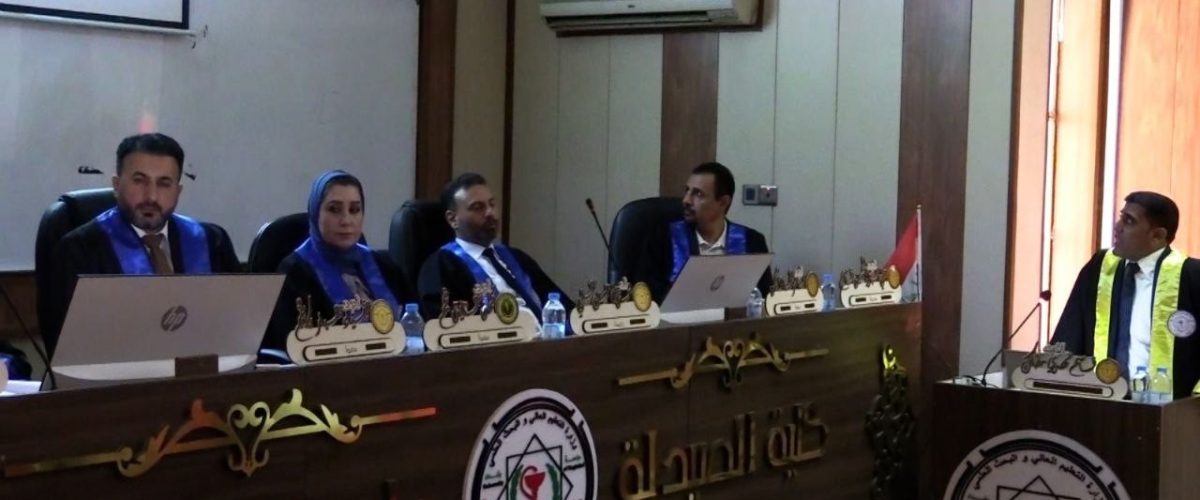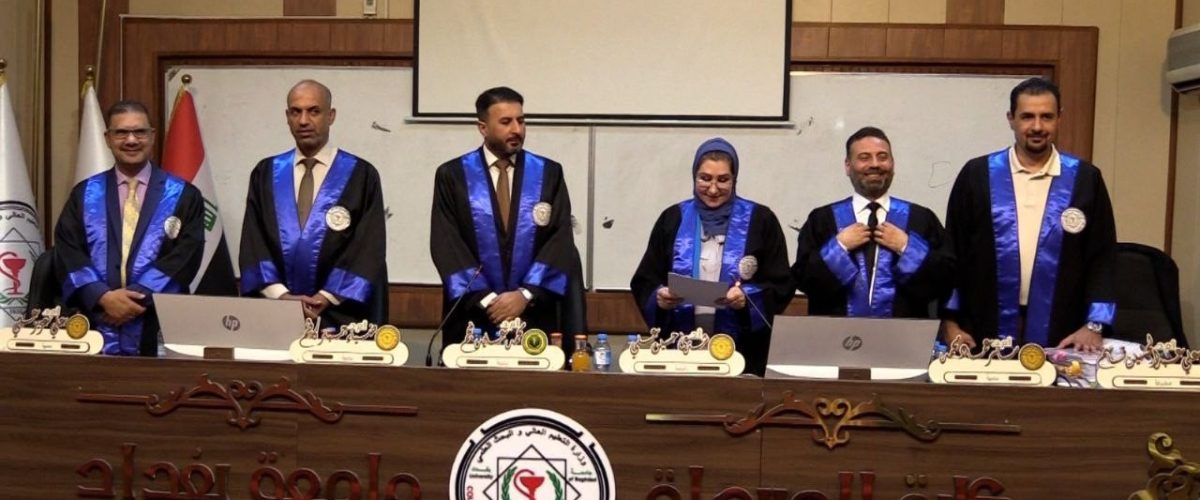The Faculty of Pharmacy discussed the PhD dissertation entitled “Impact of Gene Polymorphism on the Outcome of Methotrexate Treatment in A Sample of Iraqi Rheumatoid Arthritis Patients” by Qassim Mahdi Mutlak and his supervisor Assist. Prof. Dr. Ali Abdulhussain Kasim; in the Clinical Pharmacy Department. The study aimed to investigate the genotype and allele frequency of methylenetetrahydrofolate reductase (MTHFR) gene variants (rs1801133 and rs1801131), and thymidylate synthase (TYMS) gene variants (rs2853741, rs2853742 and rs2606241) in Iraqi rheumatoid arthritis patients on methotrexate (MTX) treatment; and to study the potential association of these variants with the clinical outcomes as well as the adverse effects MTX treatment. A cross sectional cohort study was conducted on 95 adult Arab Iraqi rheumatoid arthritis patients receiving MTX for at least three months. Patients were allocated into two groups, based on their clinical response to MTX; the responder group, which involved 47 patients, and the non-responder group, which has 48 patients. A polymerase chain reaction-restriction fragment length polymorphism technique was done to analyze the MTHFR rs1801133 and rs1801131 gene polymorphisms; while Sanger’s sequencing was performed for analysis of TYMS rs2853741, rs2853742 and rs2606241gene polymorphisms. The study showed that MTHFR rs1801131 followed both codominant and dominate models, in which in the codominant model, GG and TG predict responders compared to the TT allele. The AG haplotype was significantly associated with response to MTX. Regarding TYMS gene, one SNP polymorphism (657334 C>A) was identified to be novel. The CTAT (115C>A, 133T>C, 224A>C, and 255T>C SNPs) haplotype was significantly associated with response to MTX. The study has successfully identified a panel of pharmacogenetic indicators that have the potential to be valuable in predicting the response to MTX treatment in Arab Iraqi patients with rheumatoid arthritis.




